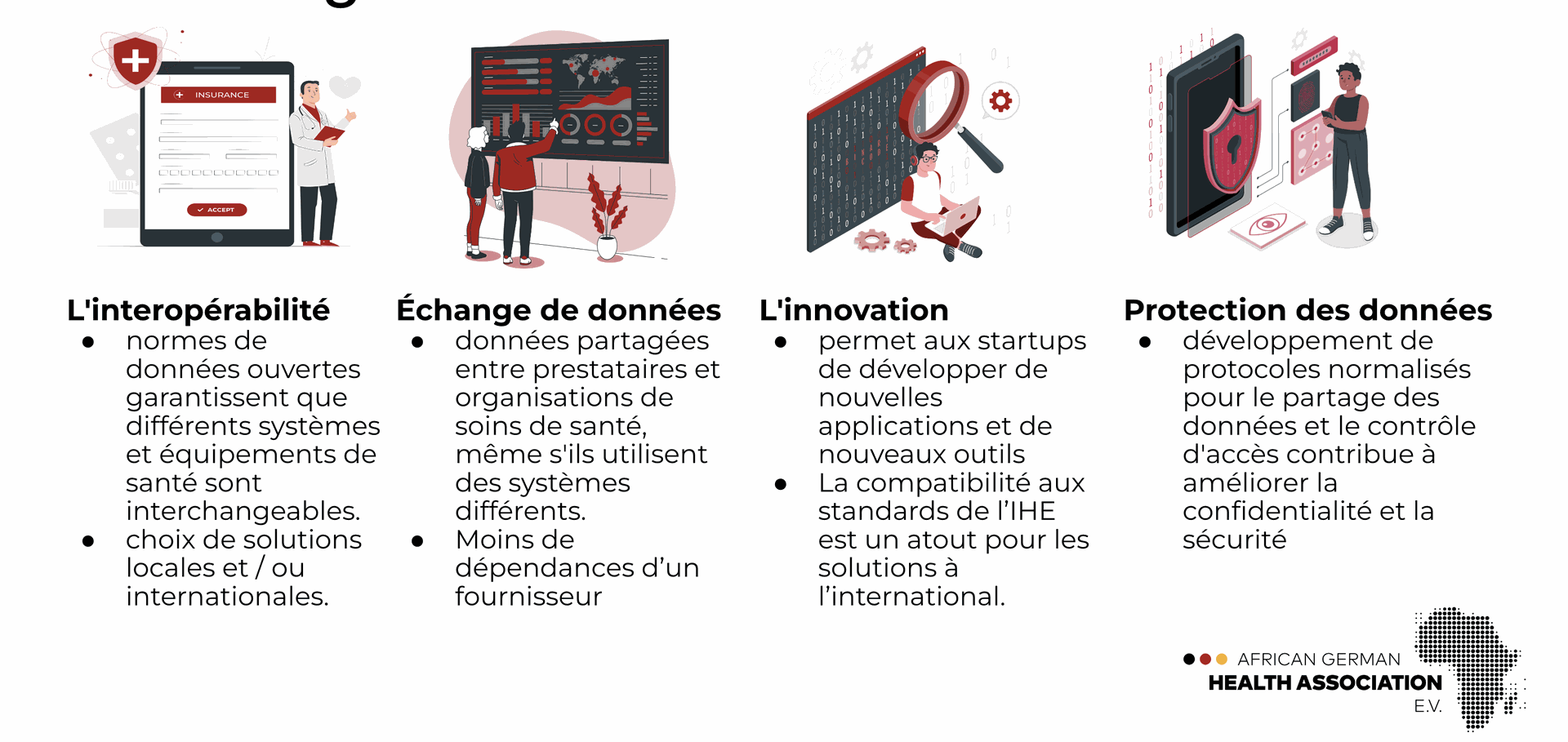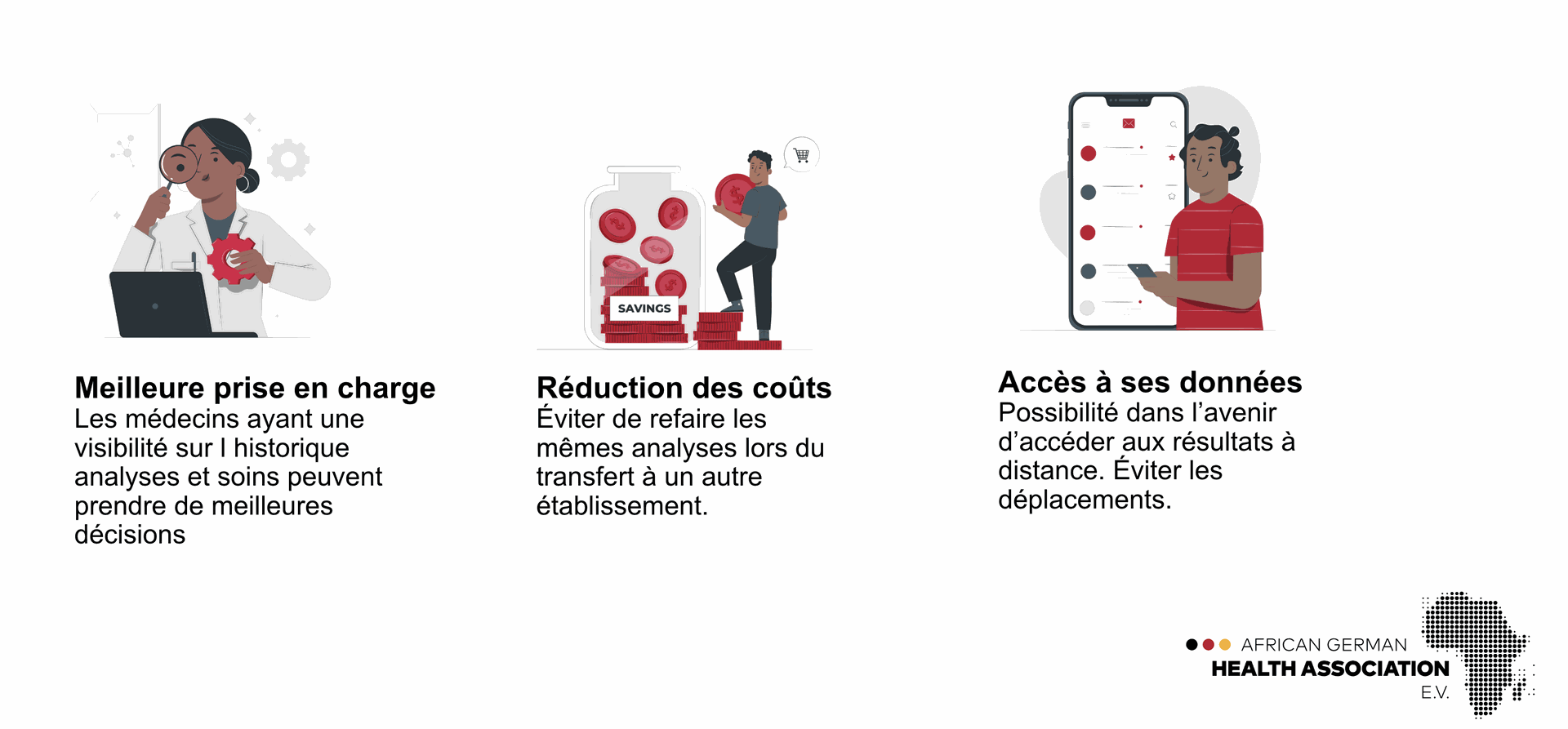Invest for Jobs is the Special Training and Employment Initiative, which aims to remove barriers to investment in African partner countries and create more and better jobs. Part of their programme in Senegal is funding the Integrating the Healthcare Enterprise (IHE) health data exchange feasibility demonstration project, which strengthens digital health and interoperability.
It and is one of the foundations towards a shared medical patient record and involves solution providers deployed in health facilities in the integration of international standards for the exchange of medical data, and is led by the African German Health Alliance through the European company Visuapps and its partner in Senegal Kaikai.
The project organised a launching ceremony on Tuesday 28 February 2023 with key partners. This was followed by an introduction to the IHE methodology (basic concepts and background, objectives and benefits, examples of projects in other countries). A technical training for developers and architects was also held on 1st-3rd March 2023 at the GIZ premises.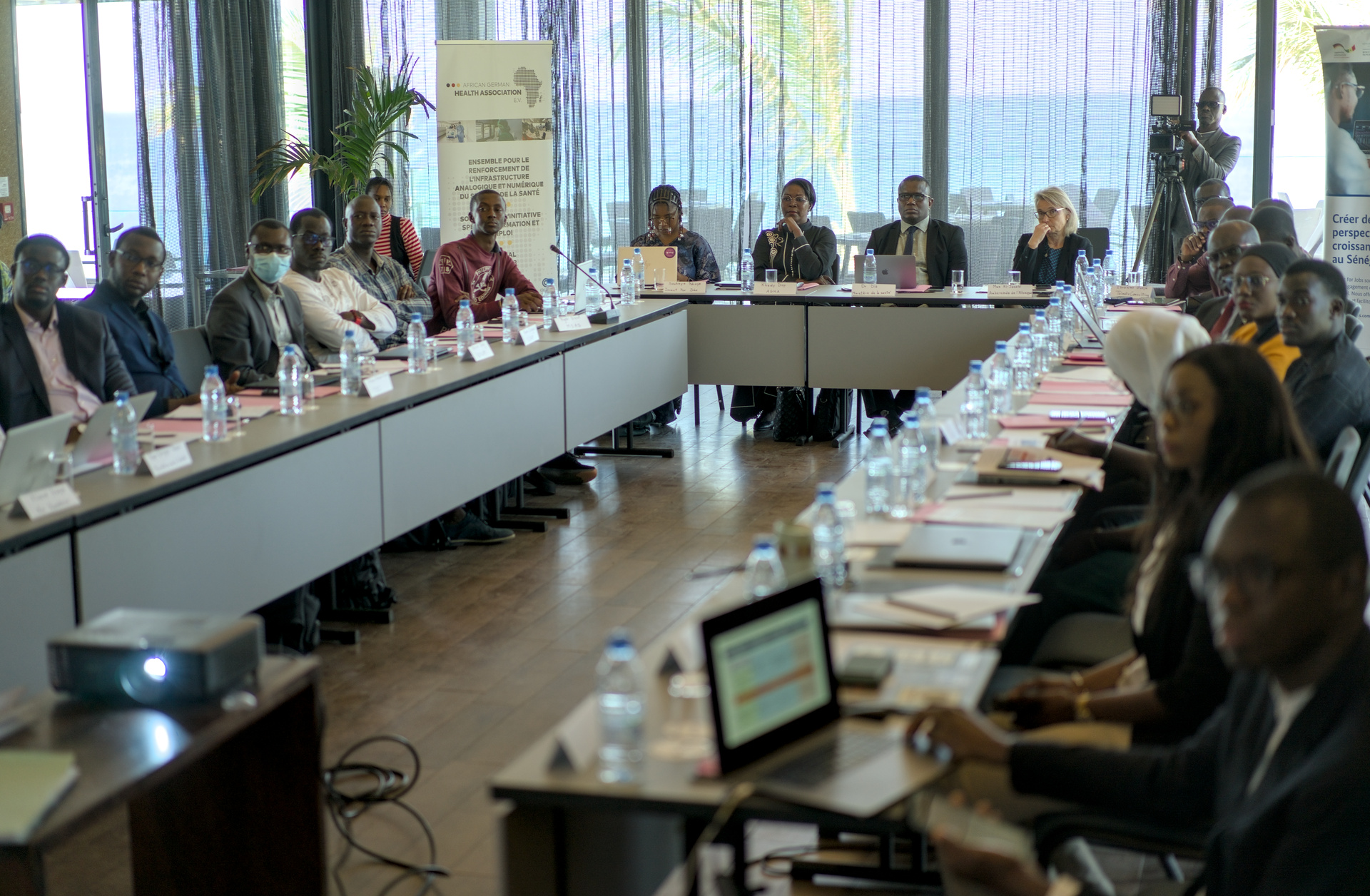
Why is this demonstration project important?
For institutional stakeholders
According to Ms Annegret Al-Janabi, Cooperation Officer at the German Embassy in Senegal, the COVID pandemic has reminded us all that only strong health systems can guarantee patient care. The rapid and secure transmission of patient data is an important basis for the proper treatment of patients under normal circumstances, and even more so in a health crisis. Ms Annegret Al-Janabi also highlighted the use of the IHE methodology to ensure interoperability of existing systems as well as the flexibility to add new systems.
Dr Ibrahima Khaliloulah Dia, coordinator of the Health and Social Map, Digital Health and Health Observatory Unit (CSSDOS) within the Ministry of Health and Social Action (MSAS), recalled that the project is of paramount importance for the MSAS for the implementation of the digital patient file in Senegal as provided for in the strategic plan for digital health 2018-2025. According to him, the project will allow Senegal to understand building blocks on which Senegal can build for a national digital patient record - both at the technical level but also at the legislative level.
Dr. Dia clarified that this project is a demonstration of the feasibility of exchanging medical data according to IHE standards and not yet the implementation stage as such. 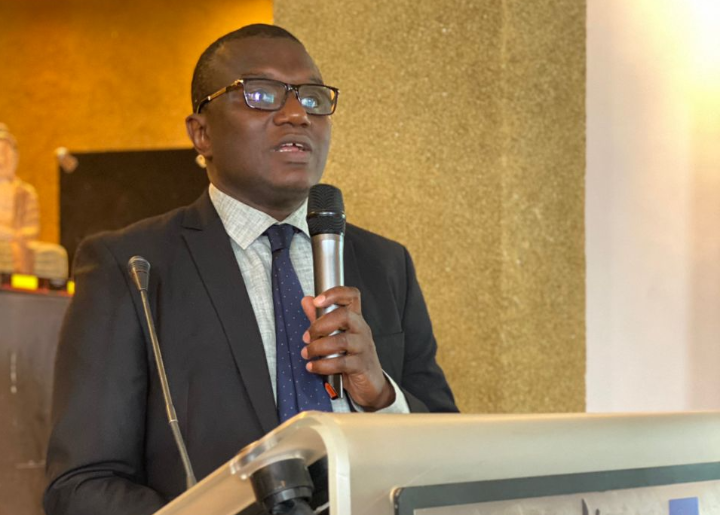
Mrs Khady Diop, representative of AGHA - African German Health Association e. V., explained that AGHA's overall objective is to contribute to the sustainability and strengthening of health systems in Africa, in collaboration with local public and private actors.
She also recalled that the project had been presented to His Excellency Mr Macky Sall, President of the Republic of Senegal, during his visit to Germany, and that he had been delighted that such an initiative was being carried out and that it could be included in the overall context of the Senegal Digital Strategy 2025 (SN2025) in the operationalisation of the digital health strategy.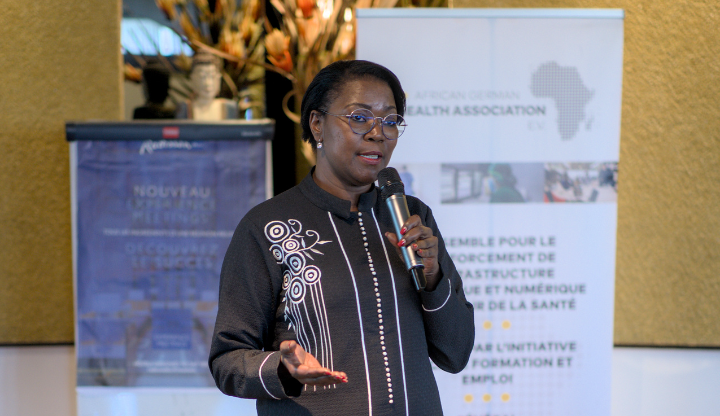
For the target players - hospitals, solution providers and patients
The eHealth solution providers are an essential link in the success of this proof of concept. Indeed, they are the bridges that link us with the hospitals in which their solutions are deployed.
According to Henri Gueye, CEO of eYone, who spoke on behalf of all the vendors involved in this project (eYone, PatientPro and Njureel), this project is important for them in their prospects for growth, scaling up and adopting international standards in their solutions, as implementing the recognised IHE standards will allow their solutions to be exportable to other countries and will also enable them to be interoperable with other solutions. He insisted that this project should be completed with concrete and tangible results.
For Alioune Gueye, from the Centre Hospitalier Roi Baudouin, this project came at the right time because digitalisation and interoperability in the health sector have become essential for hospitals.
However, he insisted on the fact that communication must be accentuated to reach patients because Roi Baudouin polarises the whole suburb of Guédiawaye. Indeed, with good communication focused on the patient, they will be able to understand that interoperable solutions mean better care thanks to the availability of the medical history to the health care staff, but also that it will allow them to avoid repeating the same analyses during a transfer to another establishment. 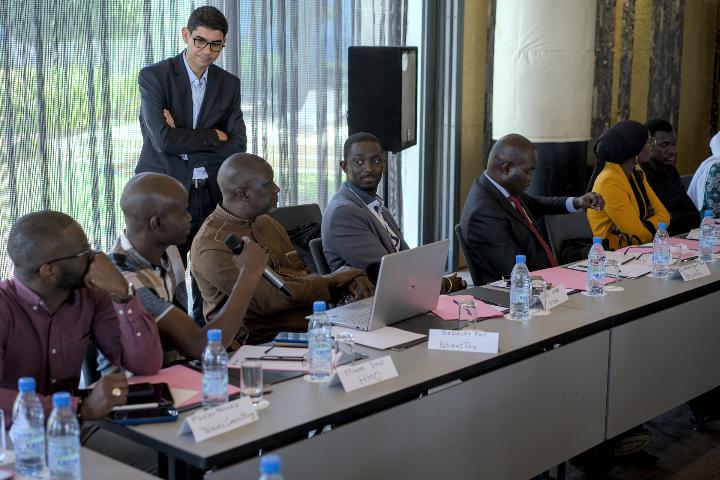
Presentation of the project
Nils Kaiser (kaikai) presented the project and the advantages of focusing on the IHE methodology.
What is IHE?
IHE was created in the United States in 1997 to improve data exchange in radiology. Today it is a not-for-profit community of 300 global medical equipment and software providers, and provides a defined process to identify standards, uses and modes of integration in health information systems.
Regular connectathons are organized to test the compatibility of solutions with standards. Overall it thus improves healthcare by providing specifications, tools and services for interoperability. However today, most activities are focused on North America, Europe and Asia, despite the presence of IHE compatible devices (scanners, diagnostic devices) on the African continent.
Objectives of the project
The main objectives of the project are
Demonstrate the feasibility of medical data exchange in Senegal using IHE standards and methodologies
Training selected Senegalese HIS providers on IHE, interoperability and patient onboarding testing.
Exploring the regulatory and institutional steps required to implement a national architecture according to IHE
The establishment of a Senegalese IHE community, which would be a first in West Africa
Benefits of IHE?
Benefits for patients
The Technical trainings
Following the official launch of the project, technical training was delivered by Abdallah Miladi of Visuapps and was divided in 3 parts:
A general information session on IHE for all stakeholders
Technical training for HIS editors but also for the technical services of MSAS, MENT, SENUM.
One to one session between the technical manager of Visuapps and the developers of the HIS editors for the integration of APIs.
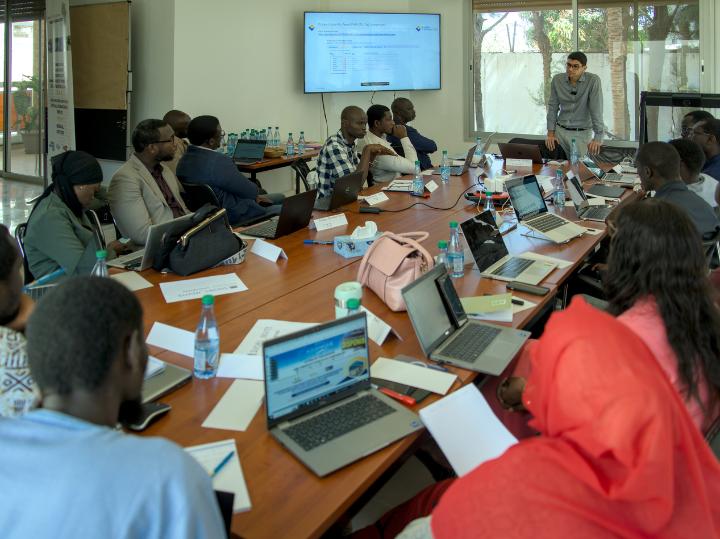
Training modules
The following topics where covered
This section covered the management of demographic data and patient identifiers and the methods proposed by IHE to consolidate flows from multiple hospitals or care centres. HL7v2, HL7v3 and FHIR standards will be introduced to detail the transactions used.
Given the use cases where the patient travels to find the appropriate care, this module deals with cross-community exchanges to ensure that health professionals have access to the patient's demographic and medical data regardless of where they come from.
The transactions between the different parties require the security of the exchanges and the guarantee that these exchanges are traced in order to be able to trace the chain of traceability. The RFC7519 (JWT) and RFC7522 (SAML) standards will be introduced to detail the transactions used.
Participants
This project involves several stakeholders from both the public and private sectors:
Public sector (MSAS, MENT, ARTP, SENUM, CDP)
Hospital management solution providers: eYone; Njureel and PatientPro
Representatives of health structures: Military Hospital of Ouakam, ROI BAUDOUIN
OPTIC members (Baamtu, Gaindé 2000, Cagecfi)
Tony Blair Institute
Overall appreciation of the participants of the technical trainings and next steps
Global Feedbacks from participants
With a satisfaction rate of over 86%, the participants generally appreciated the quality of the training and the trainer's mastery of the subject. They considered that the objectives were largely achieved and made some recommendations that should be taken into account:
Deliver further training to further reinforce learning
See how to do an IHE certification for participants
Add practical cases of IHE implementation and data exchange between applications
Adding use cases for future training
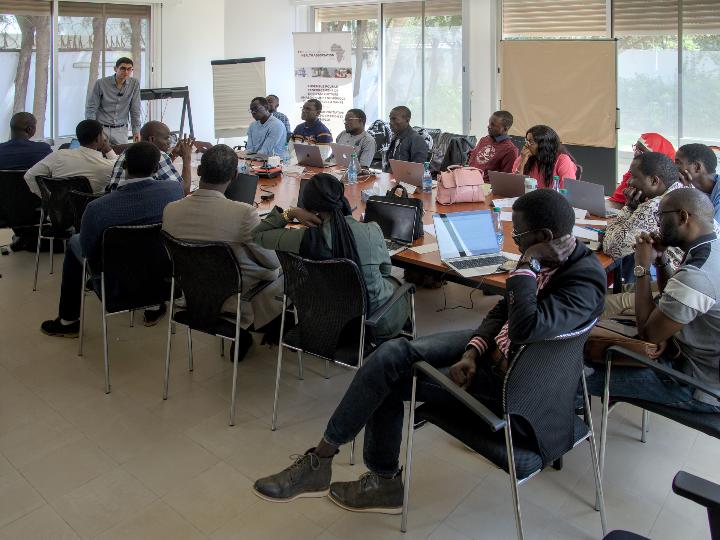
Next Steps
At the end of the training, the next steps of the project are :
Integration of standards into suppliers' solutions, preparation of use cases and tests, involvement of health structures
Mini-Connectathon: This will allow for the testing of use cases to be implemented by the solution providers. It is a unique opportunity to test interoperability using real clinical scenarios.
Operational phase of the proof of concept (tests of patient onboarding and data exchange)
Delegation to Austria: To allow the Senegalese government and the main actors involved in the project to have feedback on the implementation of the e-health infrastructure based on the IHE architecture.
Acknowledgements
We would like to thank our partners who made this step possible, in particular Dr Ibrahima Khaliloulah DIA (CSSDOS / MSAS) and the team members of the Ministry of Health and Social Action, the German Embassy, Sénégal Numérique S.A. (ex-ADIE), the CDP - Commission de Protection des Données Personnelles du Sénégal, the Ministère de la Communication, des Télécommunications et de l'Economie Numérique, solution providers, hospital structures and OPTIC member companies that participated in the activity, and of course Invest for Jobs - Special Initiative "Decent Work for a Just Transition", African German Health Association e. V. and VISUAPPS GmbH.
We are particularly proud to continue to support the health sector in Senegal with an innovative approach to private sector involvement and digital technology.
Co-edited by Mamadou Djigo and Nils Kaiser
